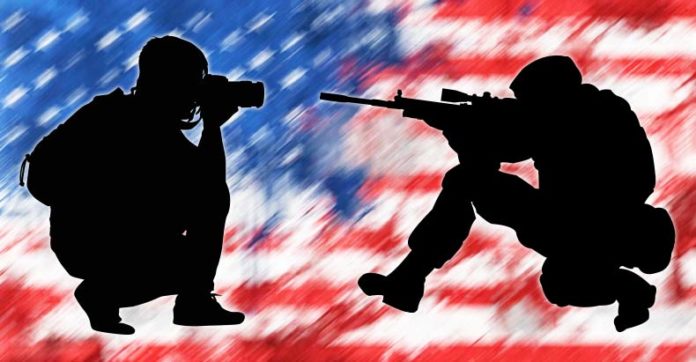
The Pentagon has just released a 1,176-page Department of Defense Law of War Manual, a book of instructions and a legal guide that tells commanders the right and wrong way to kill the enemy, which explains that shooting, exploding, bombing, stabbing, or cutting the enemy are acceptable and legitimate ways of getting the job done, but the use of poison or asphyxiating gases is not allowed by the United States military. The manual also states that journalists can be labeled “unprivileged belligerents”, an obscure term that replaced the Bush-era term “unlawful enemy combatant”.
The manual reads: “In general, journalists are civilians. However, journalists may be members of the armed forces, persons authorized to accompany the armed forces, or unprivileged belligerents.”
According to the manual, “unprivileged belligerent” would refer to someone not afforded the privileges of the Geneva Conventions, like a civilian trial, and who would be denied prisoner of war status and be detained indefinitely. Military journalists would “have the same status as other members of the armed force”.
Under the subhead “Other Journalists” the manual notes that “in general, independent journalists and other media representatives are regarded as civilians; i.e., journalism does not constitute taking a direct part in hostilities such that such a person would be deprived of protection from being made the object of attack”.
Pentagon spokesman Army Lt. Col. Joseph R. Sowers told The Washington Times he thinks there’s no deep significance to the phrasing, since it’s a manual and not binding law. “Members of nonstate armed groups, such as al Qaeda, who also do work that could be characterized as journalism, would continue to be unprivileged belligerents notwithstanding their work as journalists. As another example, enemy spies that used journalism as a cover would likely also be considered unprivileged belligerents if they are caught while engaged in espionage,” Sowers said.
The Law of War Manual was released by Department of Defense General Counsel Stephen W. Preston, who said the thick booklet represents “many years of labor and expertise”. “The law of war is a part of our military heritage, and obeying it is the right thing to do. But we also know that the law of war poses no obstacle to fighting well and prevailing. Nations have developed the law of war to be fundamentally consistent with the military doctrines that are the basis for effective combat operations,” he wrote in the foreword.
Michael Rubin, a Middle East expert at the American Enterprise Institute, told The Washington Times that the manual reflects today’s muddled world of journalism. “It’s a realization that not everyone abides by the same standards we do. Just as Hamas uses United Nations schools as weapons depots and Iran uses charity workers for surveillance, many terrorist groups use journalists as cover.”
This Article (Pentagon Brands War Zone Journalists As Terrorists) is free and open source. You have permission to republish this article under a Creative Commons license with attribution to the author and AnonHQ.com.




